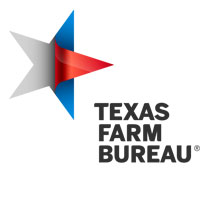TFB Resolutions Committee considers ag issues
(WACO, Texas)—Transportation, cattle fever ticks and mental health topped the list of concerns as the Texas Farm Bureau (TFB) Resolutions Committee discussed proposed policy resolutions to the state’s largest farm organization Nov. 4-5.
The committee, comprised of 41 TFB members representing Texas agriculture, spent two days reviewing, deliberating and consolidating more than 170 resolutions to both state and national policies proposed by county Farm Bureaus across the state.
The committee evaluated several resolutions to better address transportation needs for agricultural commodities.
They proposed eliminating mileage restrictions for farmers and ranchers transporting their own products.
Policy resolutions also stressed that stakeholders involved in road and bridge projects consider accommodating agricultural equipment during the design and construction.
“Agricultural equipment is large and extremely heavy. Newly constructed roads, bridges and intersections—or those undergoing repairs—should consider agriculture in the design,” Mark Chamblee, TFB vice president and Resolutions Committee chair, said.
During the two-day meeting, the committee also discussed the cattle fever tick and the impact the tick could have on the state’s cattle industry.
Resolutions supported mandatory notification and approval by the Texas Animal Health Commission in order to move any captured game or exotic animal that may be susceptible to the fever tick.
Other livestock-related resolutions included support for listing bovine viral diarrhea persistent infection (BVD PI) as a reportable disease that can be regulated.
“BVD is a devastating disease in a cow herd and is transmitted from persistently-infected females to their offspring. Efforts to rid the herd in Texas would include identifying and regulating the outcome of those persistently-infected cows and calves,” Chamblee said. “Once an animal is persistently infected, it can’t be cured. Having a regulatory program would reduce disease prevalence in the state.”
The disease, he noted, cannot be transmitted to humans.
Resolutions proposed an animal identification program that could give TFB members flexibility.
“If passed by the voting delegates, this resolution would give TFB a seat at the table when discussions occur about any animal disease traceability program,” Chamblee said. “Whether a program is voluntary or mandated, TFB will be able to mold the program to best fit member needs.”
County Farm Bureaus also favored a resolution that supports efforts related to mental health awareness, programs and community outreach.
“Farm life can be stressful, and it’s even tougher right now with the economy and the ongoing trade war,” Chamblee said. “This proposed resolution can help guide TFB in areas of stress and mental health awareness in rural communities.”
Tax assessments and rural appraisals were also reviewed. Resolutions proposed changing the eligibility for tax assessment for new agricultural land to three years from the current five years.
The committee also approved resolutions designed to make the appraisal process fair both at the appraisal district level and with the Texas Comptroller.
Food labels continue to be on the minds of both consumers and farmers and ranchers. Committee members sifted through resolutions submitted by county Farm Bureaus that discussed accurate labeling of meat products.
“Confusing labels lead to consumer mistrust in food safety and quality,” Chamblee said. “Clearly-worded meat labels is a step forward in helping farmers, ranchers and consumers better understand the verification process for the product.”
On the national level, the Resolutions Committee proposed expanding the definition of young and beginning farmers and ranchers, as well as extending the period of eligibility to 15 years on U.S. Department of Agriculture and Farm Service Agency programs.
The policy recommendations will be considered during the organization’s 85th annual meeting Dec. 7-9 in San Antonio.
State resolutions adopted at the TFB annual meeting become policies that guide the organization. National resolutions, if adopted by voting delegates at the TFB annual meeting, are sent to the American Farm Bureau Federation (AFBF) annual convention for consideration.
Resolutions approved by AFBF delegates in January provide a roadmap for the national organization.
The 2019 Texas Farm Bureau Resolutions Committee convened Nov. 4-5 in Waco to review proposed policy changes from County Farm Bureaus (CFB) across the state.
Row 1 (left to right): Russell Boening TFB president; Mark Chamblee, TFB vice president and Resolutions Committee chairman; Scott Frazier, TFB secretary-treasurer; Pat McDowell TFB District 1 state director, Mark Daniel TFB District 3 state director, Jessica Richmond TFB District 7 state director, Larry Joiner TFB District 9 state director, Allen Kaminski TFB District 11 state director; and Josh Bell, YF&R Advisory Committee vice chairman.
Row 2 (left to right): Landon Friemel, Deaf Smith-Oldham CFB; Cade Wyatt, Childress CFB; Ryan Colville, Lynn-Garza CFB, Freddie Maxwell, Lamb CFB, Mark True, Hale CFB; Scott Cleveland, Clay CFB; Joe Bob Whitaker, Young CFB; Shane Burns, Ellis CFB; Brandie Smith, Hood-Somervell CFB; Jeffery Striplin, Hunt.
Row 3 (left to right): Aaron Alcorn, Gregg CFB; Richard Reed, Panola CFB; Kevin Wilkerson, Van Zandt; Warren Cude, Pecos-Reeves; Jimmy Joy, Nolan CFB; David Strain, Scurry-Stonewall-Kent CFB; Nicki Harle, Callahan-Shackelford CFB; Bobby Pearce, McCulloch CFB; Daniel Dierschke, Travis CFB; Lana McDermott, Milam CFB; Royce Rhoades, Coryell CFB; Wade Skinner, Tyler CFB; Albert Thompson, Nacogdoches CFB.
Row 4 (left to right): Clarence “Buddy” Earles, Webb; Wayne Hofferichter, Bexar CFB; Leo Tellez, Bexar CFB; Tim Akers, Grimes CFB; John Cotterell, Fort Bend CFB; Andy Abrameit, Goliad CFB; John Friesenhahn, Guadalupe CFB; David Meek, Jackson CFB; Rogelio Mercado, Jim Wells CFB; Jewel Peterson Starr CFB.


